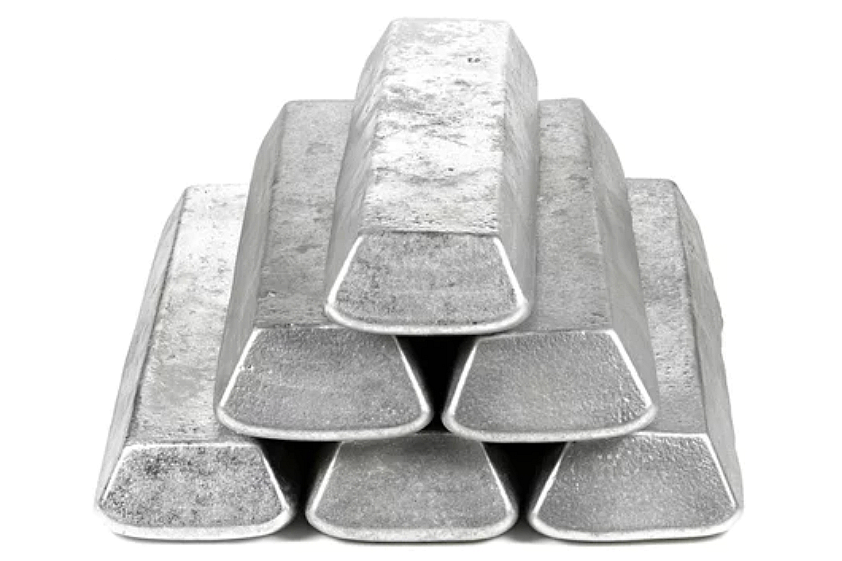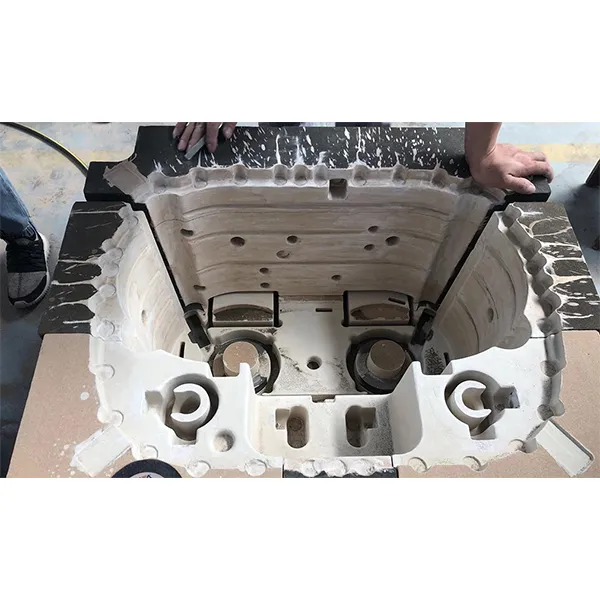Aluminum Foundry services that optimize your manufacturing output
Wiki Article
Just How Light Weight Aluminum Foundries Add To Different Industries: A Comprehensive Review
Light weight aluminum foundries act as essential distributors across numerous industries, consisting of vehicle, aerospace, construction, and electronic devices. They produce parts that are not only light-weight but additionally resilient, improving the performance of different items. With advanced casting strategies and a commitment to sustainability, these factories are adapting to meet advancing market demands. As they innovate, the influence of aluminum spreadings on various applications increases important concerns concerning the future of manufacturing. What exists in advance for this crucial industry?The Role of Aluminum Foundries in the Automotive Market
As the automotive market increasingly accepts light-weight materials to enhance fuel efficiency and efficiency, light weight aluminum factories play a critical role in this advancement. These centers concentrate on the manufacturing of aluminum castings, which are vital parts in modern-day lorries. By providing high-strength, light-weight parts, light weight aluminum foundries allow manufacturers to reduce the overall weight of automobiles, eventually resulting in enhanced fuel economy and decreased discharges.Light weight aluminum's resistance to corrosion even more enhances car durability, making it an eye-catching option for automakers. Factories make use of advanced methods such as die casting and sand casting to develop elaborate and exact parts, guaranteeing that they fulfill rigorous market standards. Additionally, the ability to recycle light weight aluminum successfully adds to a more sustainable manufacturing procedure. As the auto market continues to introduce, aluminum foundries will certainly stay critical in supplying the products required for the following generation of vehicles, sustaining both performance and environmental objectives.

Aerospace Applications of Light Weight Aluminum Castings
Aluminum castings are integral to the aerospace sector, using a mix of lightweight stamina and toughness that is essential for aircraft efficiency. These castings are used in numerous components, such as engine components, structural frameworks, and landing equipment, where weight decrease is vital for gas effectiveness and general security. The versatility of light weight aluminum enables complex geometries that improve wind resistant performance while maintaining architectural honesty.Additionally, improvements in casting modern technologies have improved the precision and surface area coating of light weight aluminum components, decreasing the demand for extensive post-processing. This effectiveness not only speeds up manufacturing timelines however likewise lowers costs, making aluminum an appealing selection for producers. The rust resistance of light weight aluminum assurances durability and reliability in extreme operating atmospheres, even more establishing its role in aerospace applications. As the sector progresses, light weight aluminum spreadings remain to be a crucial product, driving advancement and supporting the growth of next-generation aircraft.
Building Market Innovations With Aluminum
The building market has actually significantly adopted aluminum because of its light-weight residential properties and flexibility, paralleling its successful applications in aerospace. Innovations in aluminum layout have actually resulted in more powerful, a lot more effective frameworks, allowing builders and engineers to explore new possibilities. The product's resistance to rust and reduced maintenance needs make it especially appealing for both household and commercial tasks.Light weight aluminum's versatility facilitates the development of complex designs, enabling for visual improvements that were previously difficult with typical products. Prefabrication methods have likewise evolved, utilizing light weight aluminum to minimize building time and costs significantly. Additionally, the power efficiency of aluminum systems-- such as home window structures and roof-- adds to lasting building methods, aligning with contemporary environmental standards. As the building and construction sector remains to accept these developments, aluminum's role is expected to expand, driving additional advancement and adding to the growth of resistant facilities.
Electronics and the Demand for Lightweight Aluminum Components
With the fast advancement of modern technology, the demand for lightweight light weight aluminum components in the electronic devices field has actually risen. As gadgets become much more small and portable, manufacturers look for materials that use both toughness and weight reduction. Light weight aluminum, with its superb strength-to-weight ratio, has actually emerged as a favored selection for components such as coverings, heat sinks, and architectural supports.Using aluminum not just improves item performance but also adds to power efficiency, as lighter devices call for less power throughout operation. Additionally, aluminum's outstanding conductivity makes it perfect for electronic applications, ensuring efficient warm dissipation and decreasing the threat of overheating.
As customer preferences shift towards lightweight and streamlined devices, light weight aluminum factories play a necessary role in fulfilling the progressing needs of the electronics sector (Aluminum Foundry). Their capability to produce top notch and exact light weight aluminum parts sustains advancement, enabling makers to push the limits of design and functionality
Sustainable Practices in Light Weight Aluminum Foundries
As the electronic devices sector progressively focuses on sustainability, aluminum foundries are adjusting their practices to straighten with these environmental goals. Numerous shops are carrying out reusing programs that redeem light weight aluminum scrap, substantially minimizing the requirement for raw materials and reducing waste. By making use of energy-efficient modern technologies, these facilities are lowering their carbon impact; as an example, utilizing electric heaters rather than standard gas-fired ones can bring about significant power cost savings.Additionally, light weight aluminum factories are buying water preservation steps, such as closed-loop systems that recycle water made use of in cooling procedures. These techniques not just lower water intake however also minimize the ecological influence connected with wastewater discharge. Furthermore, lots of factories are discovering eco-friendly power resources, such as solar and wind power, to satisfy their power requires sustainably. Via these campaigns, aluminum factories exemplify a dedication to environmental stewardship while remaining to fulfill the demands of the electronic devices industry.
Future Patterns in Light Weight Aluminum Foundry Technologies
Emerging modern technologies are poised to change aluminum shops, improving effectiveness and product high quality while progressing i loved this sustainability efforts. Advancements such as expert system and artificial intelligence are expected to enhance production procedures by predicting devices failings and boosting source allotment. The assimilation of advanced robotics will improve operations, decreasing labor costs and minimizing human mistake.Additive manufacturing, or 3D printing, is also acquiring grip, allowing the production of intricate geometries that were formerly unattainable with typical techniques. This change might bring about significant product cost savings and decreased waste. Additionally, wise shops using IoT (Web of Things) modern technologies look at here now will certainly allow real-time surveillance and data analysis, cultivating proactive decision-making.
Last but not least, the adoption of cleaner melting modern technologies and reusing strategies will certainly additionally lower the environmental impact of aluminum factories, making them much more lasting. Collectively, these fads signify a future where light weight aluminum foundries can run with better performance and duty.
Frequently Asked Concerns
What Are the Ecological Effects of Light Weight Aluminum Foundries?

Just How Do Foundries Ensure Top Quality Control in Light Weight Aluminum Spreading?
Shops assure quality assurance in light weight aluminum casting by applying rigorous examination procedures, making use of advanced technology, carrying out routine material testing, and sticking to industry requirements, therefore maintaining consistency and dependability in their completed products. Precision aluminum casting.What Is the Typical Lifespan of Aluminum Cast Parts?
The average lifespan of light weight aluminum have a peek at this website cast parts generally ranges from 10 to 50 years, relying on factors such as environmental problems, usage, and maintenance. Appropriate care can considerably boost their sturdiness and efficiency in time.Exactly How Are Light Weight Aluminum Alloys Selected for Certain Applications?
Light weight aluminum alloys are selected based upon variables such as stamina, rust resistance, weight, and thermal conductivity. Designers review the details needs of applications to establish one of the most appropriate alloy for best performance and toughness.What Are the Security Regulations for Light Weight Aluminum Factory Employees?
Security laws for light weight aluminum factory employees include personal protective tools mandates, ventilation requirements, direct exposure limitations to hazardous materials, and methods for managing liquified steel. Conformity warranties worker safety and lessens health risks related to foundry procedures.As the automobile industry progressively accepts light-weight products to enhance gas performance and efficiency, light weight aluminum factories play a vital function in this advancement. As consumer choices shift in the direction of lightweight and streamlined gadgets, aluminum shops play an essential duty in fulfilling the developing needs of the electronic devices industry. As the electronic devices industry progressively prioritizes sustainability, light weight aluminum foundries are adapting their practices to straighten with these environmental goals. Lots of shops are carrying out recycling programs that reclaim aluminum scrap, greatly reducing the need for raw materials and decreasing waste. Security policies for aluminum foundry employees consist of individual protective tools mandates, air flow needs, exposure limitations to dangerous materials, and protocols for managing liquified steel.
Report this wiki page